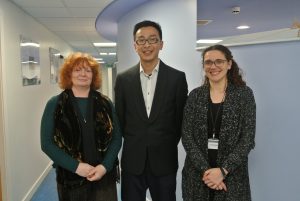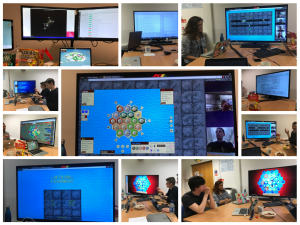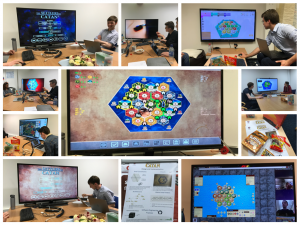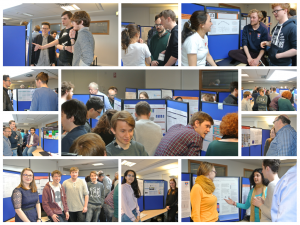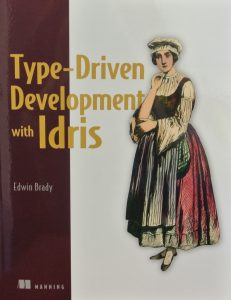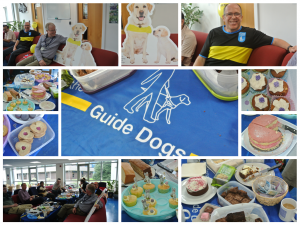Congratulations to Yunjia Wang, who successfully defended his thesis today. He is pictured with Internal examiner Dr Alice Toniolo and Supervisor Dr Ishbel Duncan.
Junior Honours: Software Team Project 2017
Earlier today our Junior Honours students presented their Team Projects. The projects involve substantial team based software engineering and rely heavily on collaborative development. There are many aspects of software and professional development along with considerable inter-team and intra-team collaborations. This year the students were asked to develop a version of the Settlers of Catan with AI players. They were further asked to make their games interoperate so one teams AI or human player might play on another teams game and board.
The teams demonstrated lots of creativity with the use of software tools, approaches to AI, use of domain specific languages, remote services, games environments, graphics development, collaborative frameworks and many tools for software engineering project development. Thanks to all the students, supervisors and coordinators for their hard work this year.
We wish all our junior honours students success with their forthcoming exams and we look forward to seeing them again for their senior honours year in September.
Images and text courtesy of Professor Aaron Quigley
Senior Honours: Poster Presentation and Demo Session 2017
Our talented hard working SH students from CS4099: Major Software Project and CS4098: Minor Software Project presented their posters and final year software artifact to staff and students earlier this week.
As Illustrated in the above collage, the busy poster session is the perfect opportunity to discuss output from their year long project with markers, and provides time to share research ideas and reflect on the experience with their peer group. We wish them success with forthcoming exams and look forward to seeing them during June graduation celebrations.
SRG at IEEE CCGrid 2017
Congratulations to Uchechukwu Awada, who presented “Improving resource efficiency of container-instance clusters on clouds” at the 17th IEEE/ACM International Symposium on Cluster, Cloud and Grid Computing.
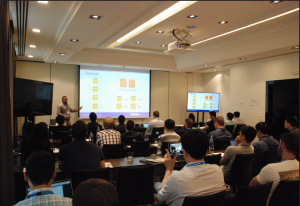
Translational Research into Common Psychiatric Disorders, Professor Douglas Steele, Professor of Neuroimaging / Consultant Psychiatrist, University of Dundee
Translational Neuroimaging Based Psychiatric Research
Computational methods are having a considerable influence on contemporary neuroscience research: in data collection (non-invasive functional brain imaging), data analysis and computational modelling of healthy and abnormal brain and behaviour. The presentation is in two parts. Part 1 is an overview of the current main computational-neuroscience areas in research. Part 2 focuses on some recent high impact research into potential empirical and mechanistic biomarkers for psychiatric disorders.
Event details
- When: 24th April 2017 14:00 - 15:00
- Where: Cole 1.33a
- Format: Colloquium, Seminar, Talk
SRG Seminar: “Evaluating Data Linkage: Creation and use of synthetic data for comprehensive linkage evaluation” by Tom Dalton and “Container orchestration” by Uchechukwu Awada
The abstract of Tom’s talk:
“Data linkage approaches are often evaluated with small or few data sets. If a linkage approach is to be used widely, quantifying its performance with varying data sets would be beneficial. In addition, given a data set needs to be linked, the true links are by definition unknown. The success of a linkage approach is thus difficult to comprehensively evaluate.
This talk focuses on the use of many synthetic data sets for the evaluation of linkage quality achieved by automatic linkage algorithms in the domain of population reconstruction. It presents an evaluation approach which considers linkage quality when characteristics of the population are varied. We envisage a sequence of experiments where a set of populations are generated to consider how linkage quality varies across different populations: with the same characteristics, with differing characteristics, and with differing types and levels of corruption. The performance of an approach at scale is also considered.
The approach to generate synthetic populations with varying characteristics on demand will also be addressed. The use of synthetic populations has the advantage that all the true links are known, thus allowing evaluation as if with real-world ‘gold-standard’ linked data sets.
Given the large number of data sets evaluated against we also give consideration as to how to present these findings. The ability to assess variations in linkage quality across many data sets will assist in the development of new linkage approaches and identifying areas where existing linkage approaches may be more widely applied.”
The abstract of Awada’s talk:
“Over the years, there has been rapid development in the area of software development. A recent innovation in software or application deployment and execution is the use of Containers. Containers provide a lightweight, isolated and well-defined execution environment. Application container like Docker, wrap up a piece of software in a complete file-system that contain everything it needs to run: code, runtime, system tools, system libraries, etc. To support and simplify large-scale deployment, cloud computing providers (i.e., AWS, Google, Microsoft, etc) have recently introduced Container Service Platforms (CSPs), which support automated and flexible orchestration of containerised applications on container-instances (virtual machines).
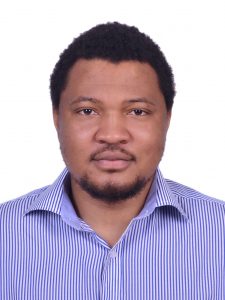
Existing CSP frameworks do not offer any form of intelligent resource scheduling: applications are usually scheduled individually, rather than taking a holistic view of all registered applications and available resources in the cloud. This can result in increased execution times for applications, and resource wastage through under utilised container-instances; but also a reduction in the number of applications that can be deployed, given the available resources. In addition, current CSP frameworks do not currently support: the deployment and scaling of containers across multiple regions at the same time; merging containers into a multi-container unit in order to achieve higher cluster utilisation and reduced execution times.
Our research aims to extend the existing system by adding a cloud-based Container Management Service (CMS) framework that offers increased deployment density, scalability and resource efficiency. CMS provides additional functionalities for orchestrating containerised applications by joint optimisation of sets of containerised applications and resource pool in multiple (geographical distributed) cloud regions. We evaluate CMS on a cloud-based CSPs i.e., Amazon EC2 Container Management Service (ECS) and conducted extensive experiments using sets of CPU and Memory intensive containerised applications against the custom deployment strategy of Amazon ECS. The results show that CMS achieves up to 25% higher cluster utilisation and up to 70% reduction in execution times.”
Event details
- When: 20th April 2017 13:00 - 14:00
- Where: Cole 1.33b
- Series: Systems Seminars Series
- Format: Seminar
SCONE (SCOttish Networking Event)
The 18th SCONE (SCOttish Networking Event) meeting will be held in St Andrews on 26th April. These are informal gatherings of networks and systems researchers and have taken place in a number of Scottish institutions since 2008. The meeting will comprise a small number of talks, including one invited speaker (Mirco Musolesi from UCL), followed by various networking activities for PhD students. We will then retire to the pub to continue our conversations. More details can be found at http://scone.cs.st-andrews.ac.uk/wiki/Meeting26042017. Attendance is free; if you are interested in coming then please contact Tristan.
We are thankful to the SICSA Networking and Systems theme for their support.
Event details
- When: 26th April 2017 12:00 - 18:00
- Where: Cole 1.33
- Format: Workshop
ACM SIGCHI: Communication Ambassador & Turing Award Celebration News
Congratulations to Hui-Shyong Yeo, who has been selected as both an ACM SIGCHI communication ambassador and to represent SIGCHI at the ACM 50 Years of the A.M. Turing Award Celebration.
 Yeo is a 2nd year PhD student and is particularly interested in exploring and developing novel interaction techniques. Since joining us in SACHI, he has had work accepted at ACM CHI 2016 and CHI 2017, ACM MobileHCI 2016 and 2017 and ACM UIST 2016. His work has featured at Google I/O 2016, locally on STV news and he gave a talk at Google UK in 2016 about his research. His work has also featured in the media including in Gizmodo, TheVerge, Engadget and TechCrunch., see his personal website for more details. Continue reading
Yeo is a 2nd year PhD student and is particularly interested in exploring and developing novel interaction techniques. Since joining us in SACHI, he has had work accepted at ACM CHI 2016 and CHI 2017, ACM MobileHCI 2016 and 2017 and ACM UIST 2016. His work has featured at Google I/O 2016, locally on STV news and he gave a talk at Google UK in 2016 about his research. His work has also featured in the media including in Gizmodo, TheVerge, Engadget and TechCrunch., see his personal website for more details. Continue reading
Hot off the press: Type-Driven Development with Idris
A new book, Type-Driven Development with Idris has just been published by Manning Publications. Written by Dr Edwin Brady, the creator of Idris, Type-Driven Development with Idris teaches you how to improve the performance and accuracy of your programs by taking advantage of a state-of-the-art type system.
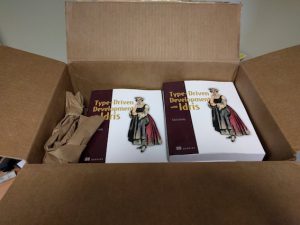
Type-driven development is an approach to programming that embraces types as the foundation of your code. It is based on the concept of “dependent types”, which allow you to express relationships and other assumptions directly in your code, and have these assumptions checked by the compiler. With this approach, you can define specifications early in development and write code that’s easy to maintain, test, and extend.
Dr Brady said:
“Idris arose as a result of my own research into program verification and language design with advanced type systems. After spending several years immersed in the concept of programming with dependent types, I felt there was a need for a language designed for developers and practitioners as well as researchers. By teaching the concept of type-driven development using Idris, the book aims to make state-of-the-art verification techniques accessible to software practitioners.”
The book is currently available via MANNING publications: https://www.manning.com/books/type-driven-development-with-idris. ePub and Kindle versions available from April 10th. The source code, chapter 1 and chapter 13 are available as free downloads.
Alex runs London Marathon 2017 for Guide Dogs
Alex Bain will be running the London Marathon again this year, raising funds for Guide Dogs. He is holding a fundraising bake sale in the department today. There are still plenty delicious cakes and home baking on offer. Support all his effort and training by buying a cake or two.
You can also donate through his justgiving page.
*Update: Total so far £320. Cakes and other sweet treats remain.


